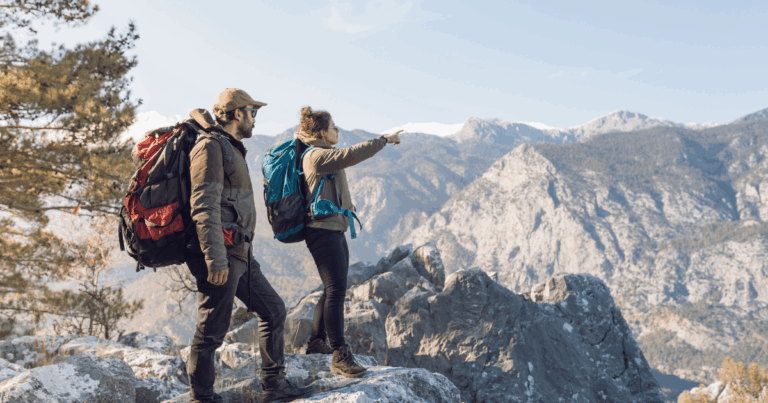What if travel were a moral choice?
Why do we leave? To flee, to seek, to feel? In a world where travel has become easy, almost commonplace, the question of "why" takes on a new depth. Travelling is no longer a simple leisure activity, it's an act fraught with consequences. Every plane journey, every night in a crowded hotel, every selfie in a place made sacred by mass tourism, bears the marks of an imprint, often invisible but very real. And what if choosing to travel was first and foremost choosing to act consciously? Because tourism, as it is practiced today, questions our ethics: what world are we leaving behind when we discover that of others? This questioning is the gateway to a new journey.
A world laid bare: the impact of modern tourism
Mass tourism is transforming landscapes, cultures and balances. Villages are turned into backdrops, traditions into spectacles, nature bent under the weight of footsteps and waste. Every year, millions of tonnes of CO2 are emitted by air transport, and every day, natural sites are eroded by over-visitation. But figures don't tell the whole story. We need to hear the voices of the inhabitants dispossessed of their places, feel the fatigue of a soiled mountain, perceive the melancholy of a culture disguised to please travelers. Unregulated tourism hurts the living, whether visible or invisible. Yet this reality can also be the tipping point for a new awareness.
Voyager autrement : l'éveil d'une responsabilité
Faced with these realities, the question arises: how can we travel without causing harm? This is where responsible travel comes in. Not as a sacrifice, but as a rediscovery. Travel slowly, use soft transport, immerse yourself in a place rather than collecting it. Meeting people, listening, learning rather than consuming. Ecotourism, solidarity tourism and immersion stays are all possible ways of combining discovery and respect. By choosing to travel differently, we give new meaning to our journey: that of being a host, not a taker. It's an act of humility, but also of great joy.
The beauty of the world as a call to preserve it
Sometimes all it takes is a dawn over the Andes, a child's gaze on the banks of the Nile, or the silence of a primary forest to understand the urgent need to protect. Travel, when experienced with eyes wide open and heart on the alert, becomes a mystical experience. It's not luxury that fills you with wonder, but the naked truth of a place left untouched, the fragility of an ecosystem, the richness of a culture that resists. So how can we fail to want to be guardians rather than passengers? In every beauty we encounter lies a silent mission: that of passing on intact what we have received.
L'appel à la conscience : quel rôle pour chacun de nous ?
Sustainable tourism is not born in large institutions, but in the actions of individuals. It begins with the choice of a destination, the way we get there, the way we behave. It's a silent pact we make with the world: I'll visit you, but I won't destroy you. So let the question cross our minds: what about me, what can I change? Can I travel less often, but more intensely? Can I give preference to local hosts, short circuits and committed initiatives? Reflection is personal, but its fruits are collective. Because a host of awakened consciences can transform the world's roads.
Agir, vraiment : les chemins d'un voyage conscient
In concrete terms, it's possible to travel differently. Choose the train rather than the plane, sleep with local people rather than in a hotel, carry a water bottle rather than consume plastic. Participate in a reforestation project, contribute to an eco-accommodation, prepare your trip by learning about the local culture. These are small gestures, but huge acts. For they weave a way of being in the world that is respectful, supportive and poetic. Travel is no longer a privilege, but a commitment. A path of intimate and collective transformation.
Vers un futur d'hospitalité et de lien
Imagine a world where travel is an act of care. Where every step is taken with gratitude, every glance with respect. It's up to us to build this world. By changing the way we travel, we change the way we connect. With others, with nature, with ourselves. Sustainable tourism is not a constraint, it's a new freedom: the freedom to participate in a world that's livable, breathable and lovable. So let's go. But let's leave with a clear conscience, with love, with hope. And let every journey be a poem of commitment.
→ How do you choose to travel? Share, reflect, inspire.






